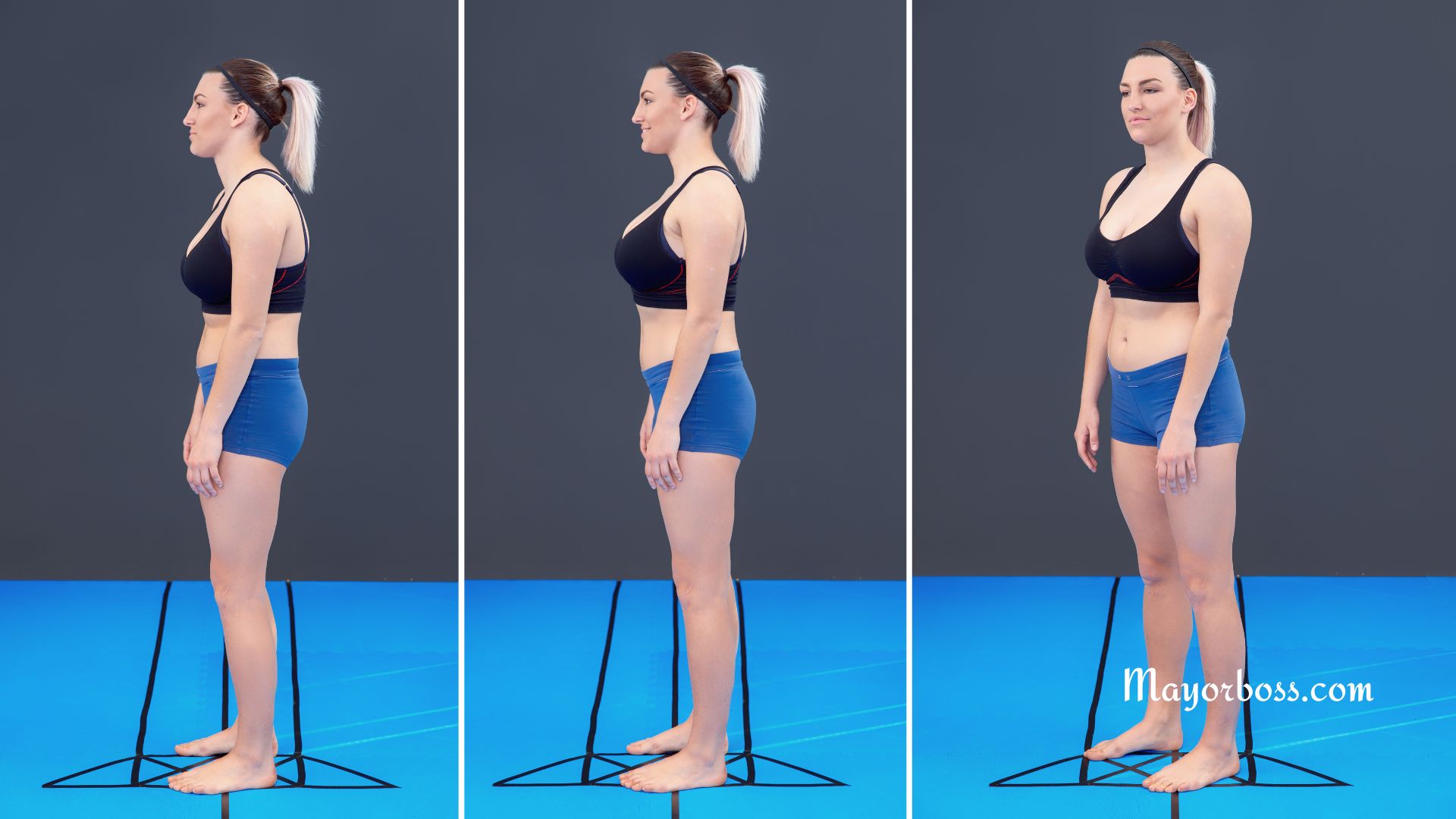Is Your Posture Killing You? Here is How to Fix It
Is your posture killing you? Bad posture can result in chronic pain, strain on ligaments and muscles, and increased stress on the spine. This condition might affect your overall well-being and quality of life. Improving your posture can alleviate these problems.
What is Bad Posture?
Bad posture, or poor posture, refers to the positioning of your body that places unnecessary strain on your muscles, ligaments, and joints. This can be due to habits developed over time, such as slouching when you sit or stand or craning your neck forward when using a mobile device.

Symptoms of Poor Posture
- Back Pain: If you feel pain or discomfort in your lower back, poor posture could be the culprit.
- Neck Strain: Hunching over causes strain on your neck muscles, which can be painful.
- Fatigue: Your muscles work harder when they’re not aligned correctly, causing you to feel tired more quickly.
- Digestive Issues: An incorrect posture can compress your internal organs, sometimes causing digestion problems.
- Breathing Difficulties: Slouching restricts your lungs’ ability to expand fully, reducing your oxygen intake.
How Can You Determine if Your Posture Is Bad?
To assess your posture, you can use a full-length mirror. Stand sideways to the mirror and check:
- Head Position: Is your head leaning forward or tilting to one side?
- Shoulder Alignment: Are your shoulders level or is one higher than the other?
- Spinal Alignment: Is your spine straight or is there an abnormal curve?
- Pelvis Position: Is your pelvis tilted forward or backward?
- Foot Position: Are your feet pointing straight ahead or turned out?
If you notice any irregularities in these areas, your posture might need improvement.
How Does Poor Posture Develop?
Lack of Awareness
Many times, poor posture develops without you even noticing. Sitting for prolonged periods at a computer or using a smartphone can pull you into a slouched position. If you are not conscious of this habit, it becomes ingrained.
Weak Muscles
If your core muscles are weak, they may not support your spine properly. This lack of support often leads to slumping or slouching.
What Can You Do to Fix Your Posture?
Fixing your posture is not an overnight process, but with determination and consistent effort, you can see significant improvements.
Exercises to Improve Posture
- Strengthen Your Core: Building strong core muscles will support your spine. Engage in activities like yoga or Pilates to help develop these muscles.
- Stretch and Mobilize: If you feel stiffness, it’s essential to stretch and mobilize your muscles regularly. Stretching your chest, shoulders, and back will promote proper alignment.
- Practice Alignment: Stand against a wall with your heels, shoulders, and head touching it. Hold this position for a few seconds every day to reinforce good posture.
Change Your Habits
- Monitor Screen Height: If you’re working on a computer, ensure that the screen is at eye level to prevent hunching.
- Use Proper Chairs: Invest in an ergonomic chair that supports your lower back and encourages good alignment.
- Take Regular Breaks: If you sit for long periods, make sure to get up and move around every half hour. A brief walk or some stretching can revitalize your muscles and remind you to sit up straight.
While Walking
- Keep Your Head Up: Look forward, not down at your feet.
- Pull Your Shoulders Back: This opens up your chest and promotes better breathing.
Seek Professional Help
If your posture does not improve or if you experience persistent pain, it might be wise to consult a physical therapist. They can develop a personalized program tailored to your specific needs and help you on your journey to better posture and overall health.
Prevention: The Key to Maintaining Good Posture
Prevention is crucial in maintaining good posture. Here are some tips:
Prevention
Prevention is crucial in maintaining good posture. Here are some tips:
- Be Mindful of Your Posture: Regularly check yourself and make necessary adjustments.
- Invest in Ergonomic Furniture: Choose furniture designed to support proper posture.
- Educate Yourself: Learn about good posture and how it affects your health.






